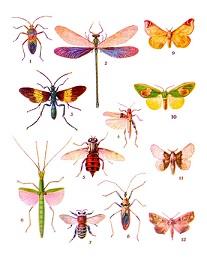Blog
SOME INTERESTING FACTS ABOUT INSECTS |
 Every now and then Global Pest Services finds an article that shares interesting facts about pests. As you know they live in our yards and sometimes in our houses. The following are some fascinating things about insects you might want to know. Insects are small however they use that to their advantage. Being a tiny insect in a big world certainly has its challenges; however there can be useful advantages to being small. An insect doesn't have much body mass, however their body surfaces of its body is large in proportion to that mass. And that means physical forces don't affect insects the way they do with larger animals. Even though they are small they can accomplish physical feats impossible to humans, or even to small animals such as birds or mice. An insect can withstand falls since its light weight means it lands with much less force. Insects like water striders can literally walk on water, by distributing their low body mass in a way that maximizes the water's surface tension. The fossil record of insects takes us back 400 million years. The Devonian period, though called the Age of Fishes, also saw the growth of terrestrial forests on dry land, and with these plants came insects. While fossil evidence of insects from before the Devonian period is most likely not to exist, we do have fossil plant evidence from that time. And some of those fossilized plants show evidence of being munched on by mites or insects of some kind. In the Carboniferous period, insects really started to diversify. Ancestors of modern day true bugs, cockroaches, dragonflies, and mayflies were among those crawling and flying among the ferns. And these insects weren't tiny, either. In fact, the largest known of these ancient insects, a dragonfly predecessor called a griffenfly, boasted a wingspan of 28 inches. As a group, insects dominate the planet. If we count every kind of land animal known thus far, from rodents to humans and everything in between, that total is still only about a third of the known insect species. We've only begun to identify and describe the insects on earth, and the list is already over one million species and climbing. Some scientists estimate the actual number of distinct insect species may be as high as 30 million. Unfortunately, a good number will likely be extinct before we even find them. While the greatest abundance and diversity of insects occur in the tropics, you can find a remarkable number of insect species in your own backyard. Several insect enthusiasts have launched backyard bug surveys in recent years, and have documented hundreds, sometimes thousands, of unique species in their own yards. Insects inhabit virtually every area of the world. They live on glaciers, in tropical jungles, in scorching deserts, and even on the surface of the oceans. Insects have adapted to living in the darkness of caverns and at altitudes only a Sherpa can appreciate. Insects are the planet's most efficient decomposers, breaking down everything from carcasses to dung to fallen logs. They control weeds, kill crop pests, and pollinate crops and other flowering plants. Insects carry viruses, bacteria, and protozoa (for better or worse). They farm fungus and disperse seeds. They even help control populations of large animals by infecting them with diseases and sucking their blood. If you feel you might have a pest infestation in your home contact a professional pest control company. GLOBAL PEST SERVICES in Las Vegas is a licensed pest control company that is qualified to handle all your pest elimination needs. Call our office at 702-657-0091 or go to our web site- to speak with us for all your pest control needs. Get a quote now! Let us know what’s bugging you…. |
FREE QUOTE
Let's Get Started...
Save 20% By Scheduling Online...
Address
 Website Powered by BannerOS. Your Business Energized!
Website Powered by BannerOS. Your Business Energized!





